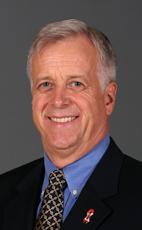Mr. Speaker, I thank the justice minister for the answer.
I do not know whom he has spoken with but over past months I have spoken with and listened to a number of police officers both in my riding and across the country. I have yet to find a police officer below the rank of superintendent or chief of police who believes universal gun registration will do anything to prevent crime.
For the minister's plan to work it must have the support of rank and file police officers whose lives are on the line. Could the minister provide the House with evidence of their support?

